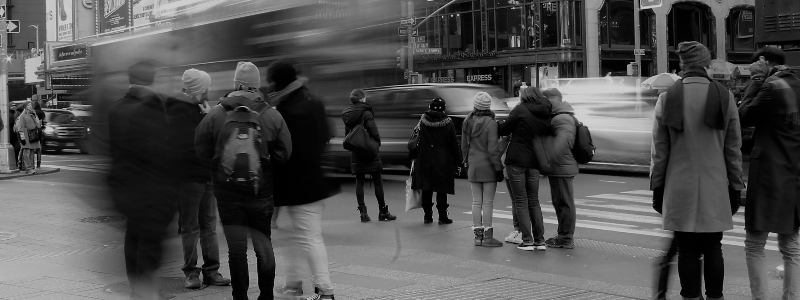“‘This – is now my way – where is yours?’ Thus did I answer those who asked me ‘the way’. For the way – it doth not exist!”
(Nietzsche, Thus Spoke Zarathustra)
Nietzsche (1961) conceives of people as a process of becoming and thus creative and transformative in nature. Nietzsche (1973) calls us to focus on facing up to the realities of the world, develop a loving relationship to ourselves; our dynamic and multiple forces, sometimes conflicting (our passions and paradoxes), and take responsibility for the creation of them and our lives. He uses the idea of our spirit being akin to a process of metamorphosis. Firstly, carrying the heavy weight that life has thrown at us, like a camel. But he calls us to consider and recognise the spirit of the lion within us too. Coining the will to power, not so much about taming, integrating or balancing these forces but more to do with inviting and using power, passion and assertion to guide the active forces and create. He promotes the body as the self; the place from which the will to power is generated.
He argued, once we accept and bear that which has been given to us we must also make space for freedom’s possibility and “seize the right to” new values (p.55). Understanding the significance of power and passions, embracing risk, uncertainty, impermanence and the importance of falling in the process of becoming and transformation. Equally he invites us to consider the rejection of conformity, duty and obligation as a necessary part of the process in decentering and freeing the self. To perhaps see it as a movement. I am free to come and go, to feel the comfort of belonging but also to recognise it is limiting and never stationary.
Therapy can sometimes feel like a space whereby you can/ might begin to navigate this, with another. Discovering, perhaps, through paying attention to how affects and intensities traverse and move through the body, and how we can learn from them. Investigating what has been difficult, whilst also considering what our greatest desires are, and aiming our flight towards them.
Existential therapy can be a way to approach this. Van Deurzen (2002) analogised the role of an existential therapist with an art tutor, one which may support the client to reach towards a sense of perspective and begin to create a more detailed picture of their past, present and possible desires for the future world. Understanding the patterns and burdens in which we have been carrying and acting out from and perhaps begin to hold them more lightly. So that we might feel more able to be in relationship with the forever present, fluid and creative spaciousness where phenomena emerges. The creative space where things move, fluctuate and are impermanent, thus always full of possibility and potential.
Perhaps a good place to start is by considering desire as a guiding light in these explorations. Tell me, what is your greatest desire?
This blog follows on from part one.
To enquire about psychotherapy sessions with Susanna, please contact her here, or to view our full clinical team, please click here.Susanna Petitpierre, BACP Registered, is an experienced psychotherapeutic counsellor, providing long and short term counselling. Her approach is primarily grounded in existential therapy and she works with individuals. Susanna is available at our Brighton and Hove Practice.
Further reading by Susanna Petitpierre –
Some thoughts on becoming (part one) …
What is the Menopause? (part two)
- van Deurzen (2002) Existential Counselling & Psychotherapy in Practice. London: Sage
- Nietzsche, F (1973) The Will to Power in Science, Nature, Society and Art, New York: Random House.
- Nietzsche, F (1961) Thus Spoke Zarathustra. trans. R.J. Hollingdale ( Harmondsworth: Penguin).





 Therapy is often called a ‘talking therapy’ but what is talking exactly?
Therapy is often called a ‘talking therapy’ but what is talking exactly? We live in a complex world which, for the most part, seems to demand that we achieve certain things to ‘be someone’ and have a successful and happy life. These ‘certain things’ are the obvious trappings of society – having a good education, getting that well-paid job or rewarding career, finding that perfect relationship, having the right house and the right car, and so on. While these can bring certain levels of happiness and contentment for some people, those feelings are usually transitory and once the excitement of the achievement dies down, it leaves us with the yearning for the next thing on the list, the next achievement that will bring us happiness.
We live in a complex world which, for the most part, seems to demand that we achieve certain things to ‘be someone’ and have a successful and happy life. These ‘certain things’ are the obvious trappings of society – having a good education, getting that well-paid job or rewarding career, finding that perfect relationship, having the right house and the right car, and so on. While these can bring certain levels of happiness and contentment for some people, those feelings are usually transitory and once the excitement of the achievement dies down, it leaves us with the yearning for the next thing on the list, the next achievement that will bring us happiness.

